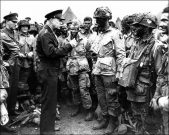Ignorance, Intelligence, and War-making
Last week, US special forces captured one Abu Anas Al-Libi, suspected of having taken part in the 1998 bombing of US embassies in Africa that killed 224 and injured some four thousand. Good. But the US government treated the event much as The New York
Times and especially The Wall Street Journal described it, “a major victory” especially for US intelligence in the “war against al Qaeda.” The Journal went on to describe Al-Libi as “an intelligence gold mine” who can tell us “the ways that al Qaeda is decentralizing and expanding in Africa,” and to urge the government to get this war-winning information out of him by…well, you know… This is fantasy. It shows deadly misunderstanding of intelligence and of the war we are in.
There is no reason to doubt that Al-Libi is someone whose death would benefit mankind, and, in his case, some reason to regret our Constitutional prohibition against cruel and unusual punishment. But pressuring him is most unlikely to yield important intelligence.
The least reason is that his interrogators will quickly demonstrate that they know very little about the matters about which they will be questioning him. The first rule of interrogation is to ask only about things of which one is absolutely certain that the prisoner knows. Letting the prisoner “know that you know” makes fruitful interrogation possible. There can be zero bluffing. The moment that interrogators show that they are either mistaken, or working from unconfirmed reports, or just trying to get an education, they discredit themselves. The prisoner can safely weave narratives of truth and tendentiousness. He can lead them on wild goose chases, at best. Pressure is irrelevant, or worse. The prisoner can better mislead the interrogators by giving the deepest disinformation only after “enhanced interrogation.”
By now, the targets of US intelligence know very well that US intelligence is so starved for knowledge, its operatives so eager to please superiors, that it tends to call good whatever comes its way. They remember – better than the US media – that CIA discovered that one of its main sources in Afghanistan was an enemy agent only after that agent had blown himself up along with seven CIA officers.
More important, interrogating Al-Libi (or anyone else) about al Qaeda is a waste of time because the label “al Qaeda” was never the key to understanding terrorism and nowadays is counter-productive to doing so. Al Qaeda consisted of some 200 mostly useless Arabs who had followed Osama bin Laden to Afghanistan at the end of the Soviet occupation, had stuck with him during his stay in Saudi Arabia and Sudan, and returned with him to Afghanistan in 1996. There these “Afghan Arabs” were joined by a baker’s dozen followers of Ayman al Zawahiri and of Khalid Sheik Mohammed. These are the people responsible for the deeds that put al Qaeda on the map. Today, whether dead, in prison or in hiding they are irrelevant. The label al Qaeda is very much alive thanks in large part to US intelligence and the press it feeds having applied it promiscuously to all sorts of people around the world. Many have taken it up as a force-multiplier and fund-raising tool.
The point is simple: by trying to fit the world’s manifold terrorists into the concept of al Qaeda, US intelligence dumbs itself down.
Most dumbing is the notion that terrorism is about Mr. Al-Libi, al Qaeda or any rogues, and that all we have to do to is to “score victories” against such people. If only it were that easy! In fact, terrorism comes from a resurgent Islam that is being redefined by the most anti-Western elements within it, as well as from our own civilization’s all too obvious decay. It is a problem of civilizations and of regimes, not of rogues. The intelligence needed to combat it has nothing to do with spies or interrogations. It is intelligence of the ordinary kind.
That is why the notion that some interrogator can extract from the miserable Al-Libi any knowledge of how “al Qaeda is decentralizing and expanding in Africa” is so pathetic. And so dangerous. That is because reality so transcends the preconceived notions into which US officials and their equally intelligent followers in the media try to fit it.
That reality is of American and European governments desperately trying to please the Muslim world by turning their backs on Western civilization and by abandoning the Middle East’s Christians to persecution. They couple this provocative weakness by exhorting Muslims to change their sexual habits. Then the Americans occasionally kill people in the Muslim world, convinced that they are diminishing the number of terrorists. Since the secret Intelligence by which they do so is highly imperfect, there is no way of knowing the true character of the individuals killed by drones or special forces. But there can be no doubt of the result: more and more people are motivated to kill Americans. Especially since money flows to those who choose to do so from the world’s biggest source of disposable income: Saudi Arabia and the Persian Gulf.
That reality is pushing America into ever-more intrusive, ever more partisan “homeland security”.
Meanwhile somebody is pressuring Al-Libi to tell how anti-Americanism is spreading, and our best and brightest are celebrating a victory.

